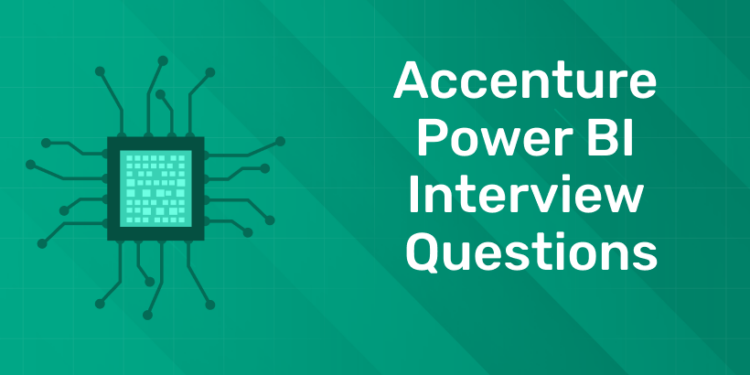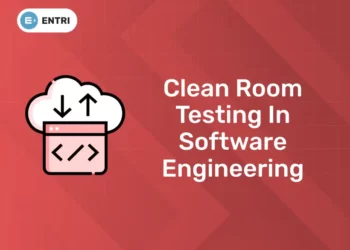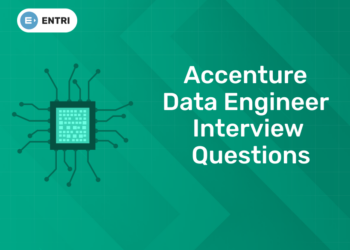Table of Contents
Power BI has become one of the most sought-after tools for business intelligence and data visualization in today’s data-driven world. Accenture, being a global leader in consulting and technology services, places a strong emphasis on hiring candidates with a deep understanding of Power BI. This blog will walk you through some of the most commonly asked Accenture Power BI interview questions, providing insights to help you prepare confidently. Whether you’re a fresher or an experienced professional, these questions will give you a competitive edge and help you ace your interview.
Enhance your data science skills with us! Join our free demo today!
Accenture Power BI Interview Questions and Answers
Here’s a list of commonly asked Accenture Power BI interview questions along with answers to help you prepare:
Basic Power BI Interview Questions
1. What is Power BI?
Power BI is a business analytics tool by Microsoft that enables users to visualize data, share insights, and create interactive dashboards and reports. It integrates with various data sources and supports cloud and on-premises services.
2. What are the components of Power BI?
The main components of Power BI include:
- Power BI Desktop: For creating reports and visualizations.
- Power BI Service: Cloud-based service for sharing reports.
- Power BI Mobile Apps: For accessing dashboards on mobile devices.
- Power Query: For data transformation.
- Power Pivot: For data modeling and calculations.
- Power View: For data visualization.
- Power Map: For 3D geospatial data visualization.
3. What are the different views in Power BI Desktop?
- Report View: For creating and designing reports.
- Data View: For viewing and transforming the data.
- Model View: For managing relationships between tables.
Intermediate Power BI Interview Questions
4. How does Power BI handle data refresh?
Power BI supports scheduled and manual data refreshes. Using the Power BI service, you can set up refresh schedules to automatically pull the latest data from the source.
5. What is DAX, and why is it used?
DAX (Data Analysis Expressions) is a formula language used in Power BI for creating custom calculations and aggregations. It enables the creation of measures, calculated columns, and custom tables.
6. Explain the difference between a calculated column and a measure in Power BI.
Calculated Column: Computed row by row at the data model level and stored in the table.
Measure: Calculated dynamically based on the context of a visual and is not stored in the table.
Advanced Power BI Interview Questions
7. How do you handle performance optimization in Power BI?
Use efficient data modeling (e.g., star schema).
Reduce data size by removing unnecessary columns and rows.
Optimize DAX expressions.
Use aggregations to minimize calculations.
Disable auto-date/time if not required.
Use Power BI performance analyzer for debugging.
8. What is row-level security (RLS) in Power BI?
Row-level security restricts data access based on user roles. It allows defining rules to ensure that users only see data they are authorized to view. RLS is implemented using DAX expressions in Power BI.
9. How does Power BI integrate with other Microsoft tools?
Power BI integrates seamlessly with tools like Excel, Azure, SQL Server, SharePoint, and Microsoft Teams. It also supports embedding dashboards and reports into PowerApps and custom applications.
Scenario-Based Questions
10. How would you handle a situation where Power BI cannot connect to a specific data source?
Verify the data source credentials.
Check the network connectivity and firewall settings.
Ensure the correct gateway is configured for on-premises sources.
Confirm compatibility between Power BI and the data source.
11. How would you create a dynamic dashboard in Power BI?
Use slicers and filters for user interactivity.
Add bookmarks for toggling between views.
Implement drill-through actions for detailed insights.
Use DAX measures to create dynamic visuals based on user selection.
12. Explain the difference between Import Mode and DirectQuery in Power BI.
Import Mode: Data is imported into Power BI, resulting in faster performance but increased memory usage.
DirectQuery: Data is queried directly from the source, ensuring real-time data but with potential performance trade-offs.
These questions provide a comprehensive foundation to prepare for an Accenture Power BI interview. Focus on combining theoretical knowledge with practical application for the best results.
Interview Preparation Tips
1: Which of the following algorithms is most suitable for classification tasks?
Here are some valuable interview tips to help you excel in your Accenture Power BI interview:
1. Understand Accenture’s Business Model
Research Accenture’s services, clients, and projects, especially related to data analytics and Power BI. Highlight how your skills align with their goals.
2. Master the Basics of Power BI
Be well-versed with Power BI’s interface, features, and common functions. Focus on topics like data visualization, DAX, Power Query, and data modeling.
3. Prepare Real-World Scenarios
Be ready to demonstrate how you’ve used Power BI to solve business problems. Highlight the data sources, transformations, visualizations, and insights you provided.
4. Revise Key Concepts
Focus on:
Power BI architecture (Desktop, Service, Mobile)
Data integration methods
Performance optimization techniques
Security concepts like Row-Level Security (RLS)
5. Practice Common Interview Questions
Use the list of Power BI questions provided earlier. Prepare both theoretical and practical answers.
6. Brush Up on DAX and SQL
Accenture often emphasizes technical skills. Ensure you’re comfortable writing DAX expressions and performing SQL queries for data extraction.
Conclusion
Preparing for a Power BI interview at Accenture requires a mix of technical knowledge, business acumen, and problem-solving skills. By mastering Power BI concepts, understanding its real-world applications, and practicing common interview questions, you can showcase your ability to deliver impactful data-driven solutions.
With thorough preparation and a confident mindset, you’ll be well on your way to acing the interview and advancing your career in business intelligence with Accenture!
Enhance your data science skills with us! Join our free demo today!










